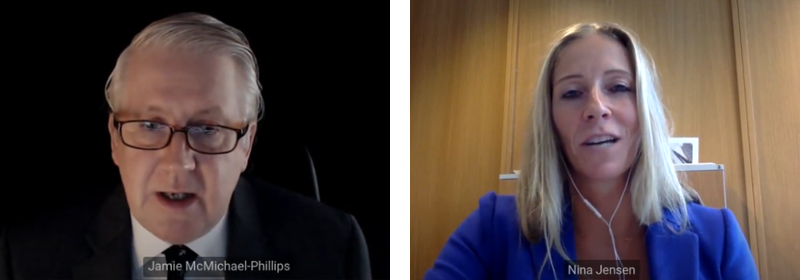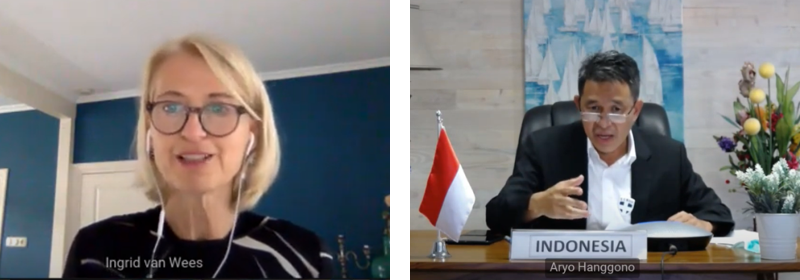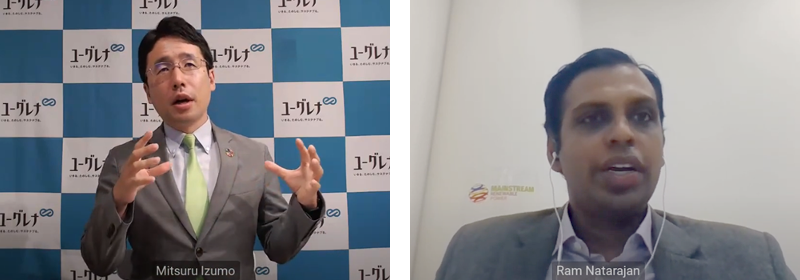News
[Event Report] The Minister of the Environment and high-level speakers discussed science, innovation and finance for a blue recovery (Outcome Digest)
On Wednesday, 26 August 2020, the 2nd webinar, “Why Science and Innovation are Crucial for a Blue Recovery” was organized as a part of the World Ocean Summit Insight Hour webinar series, jointly organized by the Ocean Policy Research Institute of The Sasakawa Peace Foundation, The Nippon Foundation, and The Economist Group. Science, technology and innovation are playing critical roles in promoting a sustainable ocean-based economy and facilitating the socio-economic recovery from the COVID-19 pandemic impacts that is called a “blue recovery”.
At this 2nd webinar, H.E. Mr. Shinjiro Koizumi, Minister of the Environment, emphasized that the Government of Japan is committed to playing a leadership role in achieving a sustainable ocean. In the panel discussions, a group of distinguished multi-stakeholder panelists from around the world, including leaders and executives from government, science and research, the private sector and international organizations discussed how to promote science, innovation and finance for achieving a sustainable ocean and promoting a blue recovery.
In his opening remarks, Dr. Atsushi Sunami, President of The Sasakawa Peace Foundation and the Ocean Policy Research Institute of SPF, recalled the discussions at the 1st webinar held last month to commemorate Japan’s Marine Day. At the same time, he referred to the recent disaster that devastated the coastal area of Mauritius. He mentioned that the people of Mauritius, with the support of France, India, Japan and others, are striving to salvage their renowned marine and coastal areas that were contaminated by the oil spill, and underlined the need to mobilize support to facilitate recovery and prevent the recurrence of such disasters.
In the keynote dialogue, H.E. Mr. Shinjiro Koizumi, Minister of the Environment, Japan, interacted with Mr. Goddard on the issues of a blue recovery and policies and initiatives related to the ocean. Minister Koizumi expressed his great concern over the marine pollution caused by the oil spill in Mauritius and referred to the assistance provided by the Government of Japan, such as the dispatch of oil spill recovery experts and equipment.

Ms. Nina Jensen, CEO, Rev Ocean, introduced the plan of Rev Ocean for building the most advanced large research and expedition vessel that will offer a free platform for scientists and ocean enthusiasts from around the world to create solutions for ocean problems.

(left) Mr. Jamie McMichael-Phillips, Director, Seabed 2030 Project, (right) Ms. Nina Jensen, CEO, Rev Ocean.
Dr. Aryo Hanggono, Director General of Marine Spatial Management, Ministry of Marine Affairs and Fisheries, Indonesia, in response to Mr. Goddard’s question about Indonesia’s strategies to tackle IUU fishing, pointed out that eliminating IUU fishing is still a vital policy goal for Indonesia and mentioned that Indonesia has identified 71 illegal fishing vessels during the COVID-19 pandemic.

Mr. Ram Natarajan, Chief Executive, APAC (Asia-Pacific), Mainstream Renewable Power, underlined that there is a growing demand for energy, and wind power generation offers a useful source of renewable energies.

(left) Mr. Mitsuru Izumo, Chief Executive, Euglena Co., (right) Mr. Ram Natarajan, Chief Executive, APAC (Asia-Pacific), Mainstream Renewable Power.
Throughout the discussion, it was obvious that the speakers attach importance to stakeholder and private sector engagement; the integration of science, technology, innovation and finance; and awareness raising, communication, and capacity development in order to promote a blue recovery and achieve a sustainable ocean.
Click here for a more detailed report.